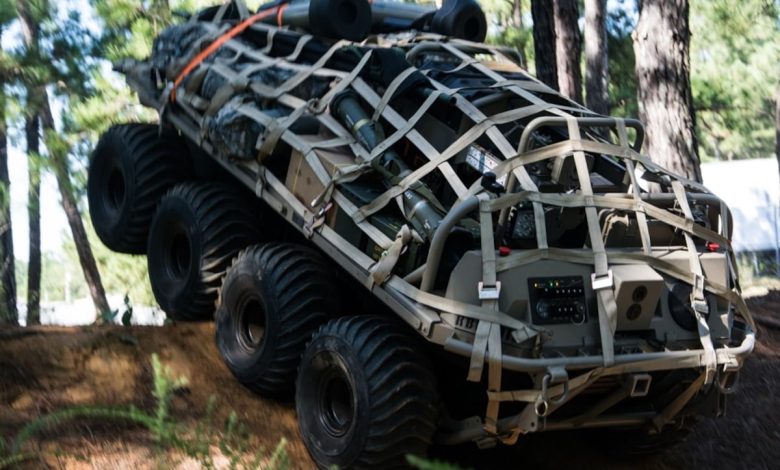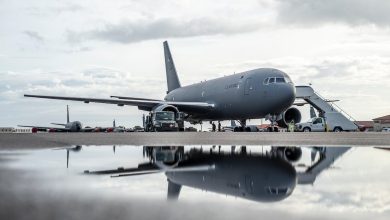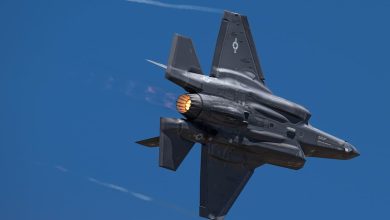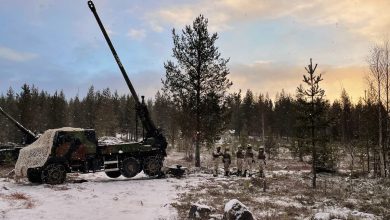Army awards two contracts to build cargo robot prototypes

DETROIT, Michigan — The Army has picked American Rheinmetall Vehicles and HDT Expeditionary Systems to build prototypes of equipment-carrying robots, the service announced Tuesday.
Several companies were competing to build the second increment of the service’s Small Multipurpose Equipment Transport (S-MET), robot, including General Dynamics Land Systems, an Anduril and Hanwha team, and Teledyne FLIR.
GDLS won the first contracts in 2019 and 2020 to build the first increment of the vehicle.
Under the newest contract, American Rheinmetall and HDT will each build eight prototypes for a combined total of $22 million, the service said in a statement.
“S-MET Increment II addresses capability gaps associated with excessive physical burdens, recharging batteries during continuous operations, and reducing sustainment burden for semi-independent operations,” Kyle Bruner, the Army’s project manager for force projection within the Program Executive Office Combat Support & Combat Service Support, said in the statement.
Using the robot also “reduces Soldier load and enhances small unit combat effectiveness by reducing fatigue and injury caused by excessive physical loads, shifting the burden to the robotic platform,” he added.
The first increment of S-MET is a radio-controlled, eight-wheeled platform that can carry various payloads and generate power for electronic systems. While the first increment is capable of carrying 1,000 lbs, the Army’s goal for the second increment is to double the weight the robot can carry, the service said.
Additionally, the second increment should have higher exportable power to handle unmanned aircraft systems, run more quietly and have a dismounted wireless mesh communication network integrated into the system.
The system is also required to be modular and open in order to upgrade it easily and cost-effectively, the Army stated.
The service plans to award a production contract for S-MET Increment II following the prototyping phase and developmental testing in late fiscal year 2027. The service’s current plan is to buy up to 2,195 systems.
The Army is pursuing a different robotic combat vehicle for heavy maneuver forces, but the S-MET vehicle could be the more common robot of choice for lighter formations, the Army’s Program Executive Officer for Ground Combat Systems, Maj. Gen. Glenn Dean, said in an interview in late 2023.
S-MET “is a very capable, small platform, and we’re seeing a lot of value with experimentation,” Dean said.
Jen Judson is an award-winning journalist covering land warfare for Defense News. She has also worked for Politico and Inside Defense. She holds a Master of Science degree in journalism from Boston University and a Bachelor of Arts degree from Kenyon College.
Read the full article here






